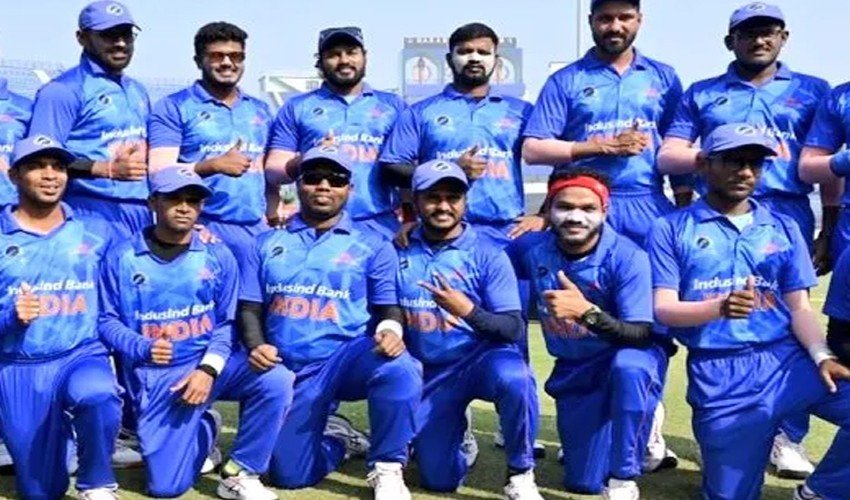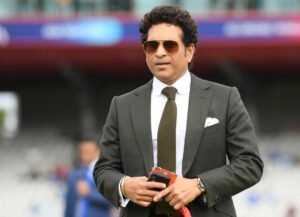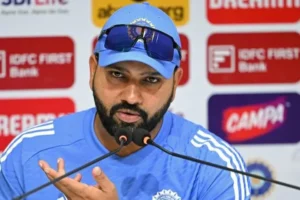The Indian blind cricket team has been denied permission to travel to Pakistan for the upcoming T20 Blind Cricket World Cup, citing security concerns. The decision, announced by the Cricket Association for the Blind in India (CABI), has sparked disappointment among players and officials. The tournament is scheduled to take place from November 23 to December 3, 2024.

While the team had received a No Objection Certificate (NOC) from the Sports Ministry, clearance from the Ministry of External Affairs (MEA) was withheld. The last-minute decision has left players and organizers frustrated as preparations had been underway for months.
Related Article: Sachin Tendulkar Biography 2024: The Untold Story of the Little Master – Childhood, Career, Family, and Legacy
Last-Minute Decision Disappoints Officials and Players
Shailendra Yadav, General Secretary of CABI, expressed his disappointment over the delay in communication. “We were informed unofficially that the blind cricket team would not be allowed to travel to Pakistan due to security reasons. Our team was scheduled to cross the Wagah border on November 20, but clearance has not been granted,” Yadav stated.
Yadav criticized the timing of the announcement, saying, “If the decision had been conveyed earlier—perhaps a month ago—we could have avoided the extensive selection trials and preparations. This last-minute decision disrupts months of hard work.”
Safety Concerns Behind the Decision
According to reports, concerns over player safety were a primary reason behind the government’s decision. Officials reportedly argued that if the mainstream national cricket team could not travel to Pakistan, it would be even riskier for the blind cricket team.
India’s security concerns regarding sports events in Pakistan are not new. Earlier, the Indian government also declined to send its national cricket team to Pakistan for the ICC Champions Trophy, scheduled for 2025. The Board of Control for Cricket in India (BCCI) had proposed a “hybrid model” for the Champions Trophy, suggesting India’s matches be hosted in neutral venues.
CABI Still Hoping for a Reversal
Despite the setback, CABI is keeping communication channels open with government officials. Yadav remains optimistic about a last-minute reversal of the decision, stating, “We are still in talks with the ministry and hoping for a favorable outcome. If the decision is reversed, we are prepared to leave immediately.”
The team, which had been staying in New Delhi for a 25-day training camp, is now in limbo. Players and staff had put in weeks of effort to prepare for the prestigious event, and the uncertainty has dampened their spirits.
Related Article: 8 Interesting Details About Virat Kohli’s Life – Virat Kholi Biography
Pakistan’s Stance on India’s Absence
The Pakistan Blind Cricket Council (PBCC) has confirmed that the World Cup will proceed as planned, irrespective of India’s participation. PBCC Chairman Syed Sultan Shah stated, “Pakistan will host the event as scheduled, and the absence of the Indian team will not affect our preparations. All arrangements are complete, and the tournament will go ahead without any changes.”
Longstanding Tensions Impacting Sports
India and Pakistan’s strained diplomatic relations have frequently spilled over into the world of sports. Sporting ties between the two nations have been limited to international venues due to security concerns and political tensions.
While international cricket matches between India and Pakistan have largely been restricted to ICC events, blind cricket tournaments were seen as an opportunity to bridge gaps. However, the recent decision reflects the broader geopolitical challenges faced by both nations.
Related Article: Sourav Ganguly Biography: Early Life, Cricket Career, Personal Life, Family, and Memorable Moments
The Hybrid Model Debate
India’s stance on not traveling to Pakistan for international tournaments has reignited discussions around the hybrid model proposed by the BCCI. The model suggests that matches involving Indian teams be held in neutral locations, a proposal that the Pakistan Cricket Board (PCB) has yet to agree to.
The issue underscores the complexities of hosting bilateral or multilateral sporting events involving India and Pakistan, with security concerns taking precedence over sporting diplomacy.
The Bigger Picture: Impact on Players
For the players, especially those representing the blind cricket community, the inability to participate in the World Cup is a significant blow. Blind cricket is not just a sport but a platform for inclusivity and empowerment. Missing out on such a prestigious event denies these athletes the opportunity to showcase their skills on the international stage.
CABI has expressed its commitment to supporting players and ensuring they remain motivated despite the setback. “We understand the challenges our players face, and we will continue to provide them with opportunities to grow and excel,” Yadav emphasized.
Conclusion: A Missed Opportunity for Sporting Unity
The Indian blind cricket team’s inability to participate in the T20 World Cup is a reminder of how political and security issues can overshadow sports. While the decision prioritizes player safety, it also highlights the need for better coordination and timely communication.
The tournament will proceed in Pakistan without India, but the absence of one of the strongest teams in blind cricket is a significant loss for the event. For now, the focus remains on fostering future opportunities for these talented athletes while navigating the complex intersection of sports and diplomacy.






